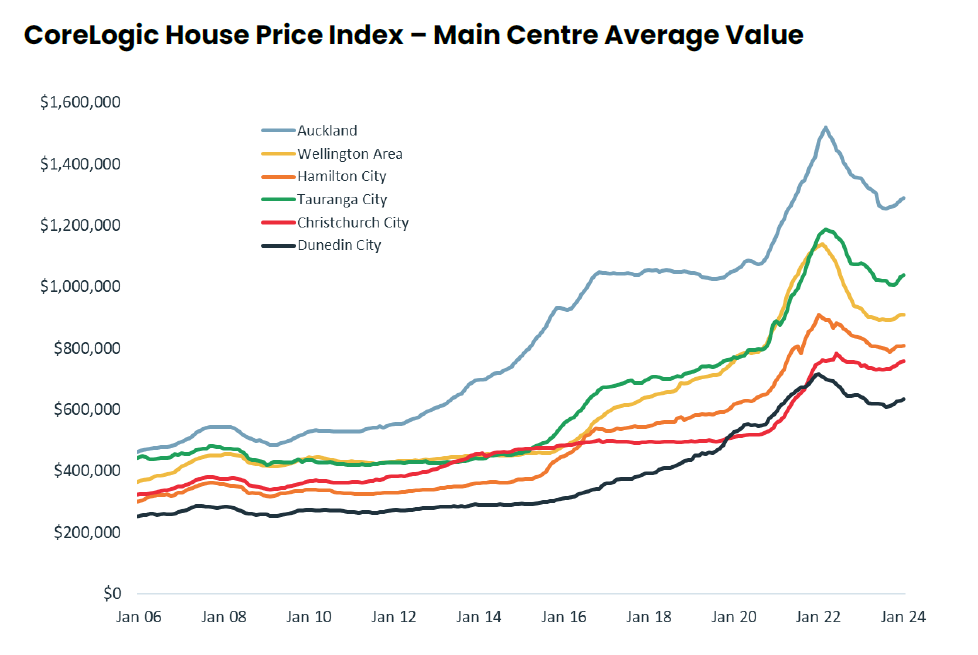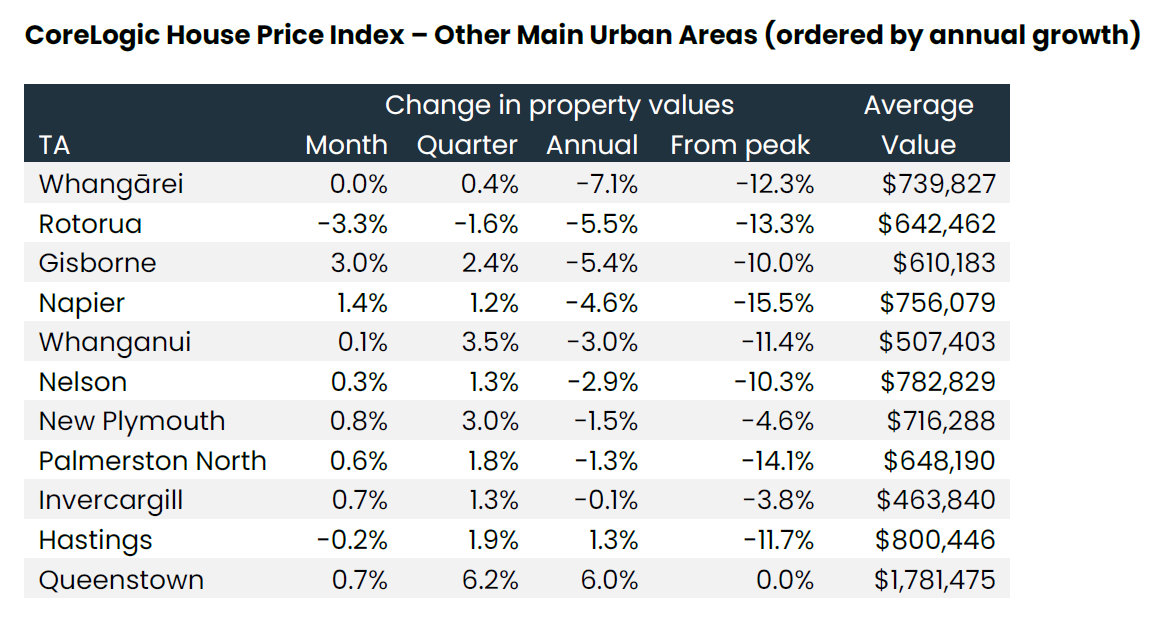House price index up for the fourth month running

The CoreLogic House Price Index in New Zealand continued its upward trend for the fourth consecutive month in January, registering a 0.4% increase.
While the figure marks a deceleration from the gains seen in November (0.7%) and December (1.0%), property values have risen by 2.5% since September, reaching a national average of $928,184, still 11% below the recent peak.
In January, Wellington and Hamilton experienced mild growth of 0.1% and 0.2%, respectively, while Tauranga and Dunedin saw more substantial gains of at least 0.6%.


Kelvin Davidson (pictured above), chief property economist at CoreLogic NZ, noted the slowdown in monthly gains, emphasising the tentative nature of the emerging recovery trend and regional variability.
The shift in the housing market sentiment since the middle of last year, influenced by a change in government and investor-friendly property policies, has contributed to the underlying drivers of employment growth and high migration. Davidson highlighted the potential impact of proposed loan-to-value and debt-to-income ratio rules, suggesting a positive near-term effect if enacted.
“Even though most indicators are pointing up, there's still the challenge of high mortgage rates to contend with, both for new borrowers and those who are repricing existing loans,” Davidson said.
“Granted, there’s now a whiff of official cash rate cuts on the horizon, which will help mortgage rates to drift lower on the popular, shorter fixed terms, but that's probably a story for the second half of 2024, not the first.”

House price index in Auckland
Within Auckland, Franklin recorded a robust rise of 2.1% in average property values in January, signaling a turnaround after prior months of weakness. Manukau also witnessed values rise by over 1%, contributing to the overall positive trajectory in Auckland’s property market.
The remaining Auckland sub-markets experienced a slight softening in January, with Waitakere showing no change. Looking at the overall performance over the past three months, Papakura exhibited a modest decline of -0.1%. However, the majority of other Auckland areas recorded gains of 1.6% or more during the same period.
“Auckland's property market has certainly started to turn around, and although significant net migration inflows are probably boosting rents more than house prices at this stage, the effects of strong population growth will still be accumulating across the various segments," Davidson said.
House price index in Wellington
Wellington’s sub-markets generally saw further growth in January, with Lower Hutt and Kapiti Coast up by at least 0.5%. However, Wellington City experienced a more subdued rise of 0.2%, and Porirua saw a 1% drop at the beginning of the year. Over a slightly longer three-month horizon, Porirua still showed an increase of 1.5%, with Lower Hutt up by nearly 5%.
Considering a slightly extended three-month timeframe, Davidson noted that Porirua has demonstrated a growth of 1.5%, while Lower Hutt has seen a substantial increase of almost 5%. Additionally, Kapiti Coast and Upper Hutt have experienced gains ranging from 2-3% during the same period.
“The wider Wellington property market is certainly playing a part in the emerging national upturn, especially in the two Hutt Valley areas,” Davidson said. “That said, these parts of the country, and especially Wellington City itself, could become very interesting markets to watch should the government decide to pare back the size of public sector workforces more significantly in the coming years.”
Regional house price index results
Provincial value results for January indicated potential variability in the property market upturn for 2024.
For instance, Gisborne and Napier rebounded with rises of 3.0% and 1.4%, respectively, after falls in December. In contrast, Rotorua fell back, and Hastings saw a slight dip in property values.
Queenstown stands out with a 0.7% increase in January and a 6% rise from a year ago, standing at nearly $1.8m.”
“Clearly, Queenstown is still a magnet for wealthy buyers, whether local or from out of town. And strong demand to live and work in the area as tourism snaps back is seemingly contributing to price pressures as well,” Davidson said.

Property market outlook
The property market outlook for 2024 suggested continued growth, with variations from month to month and across regions. Large migration inflows are currently boosting main centres, but the proposed debt-to-income rules may have a more binding effect in cities over the medium term.
“A key theme for this year will also be the relative shifts in activity for first-home buyers and mortgaged investors,” Davidson said. “In 2023, first-home buyers had a blinder, dominating in terms of market share. However, higher rents, greater interest deductibility, lower deposit requirements, and a possible drop in mortgage rates could pull some investors back into the market in 2024.”
Get the hottest and freshest mortgage news delivered right into your inbox. Subscribe now to our FREE daily newsletter.



